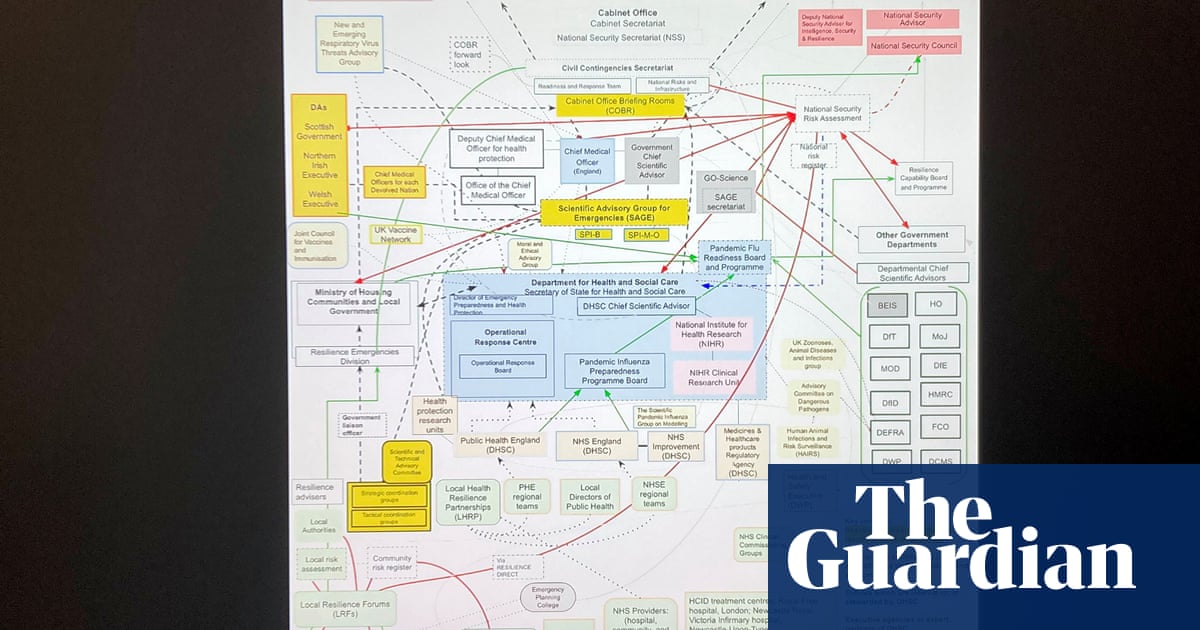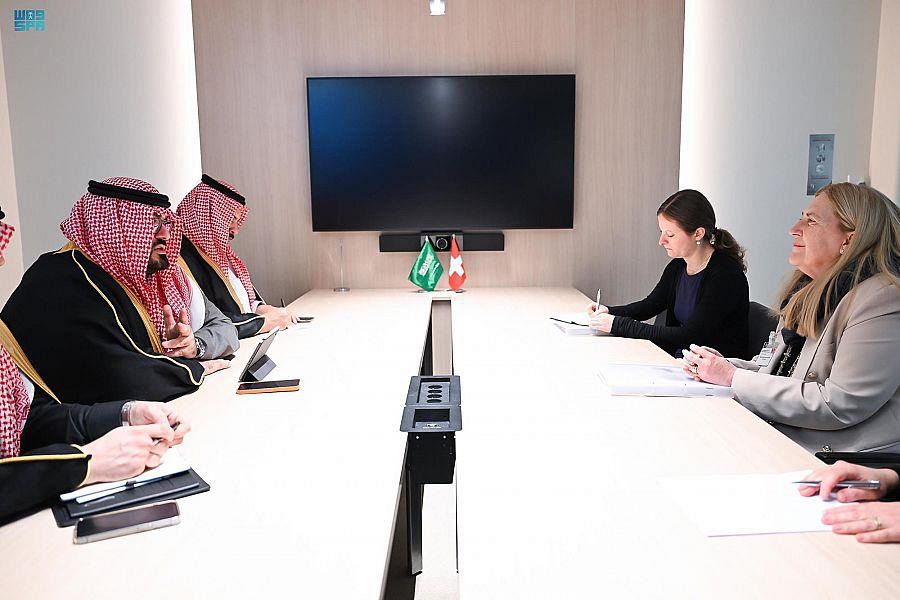
Two of the government’s most powerful civil servants have said they were not aware of any attempt to make economic preparations for a possible global pandemic in the years leading up to the coronavirus outbreak.
Sir Tom Scholar and Alex Chisholm, the permanent secretaries in the Treasury and the Cabinet Office respectively, confirmed that although the government simulated an international flu outbreak in 2016, Whitehall did not devise a plan for dealing with the consequences for the economy.
Instead, Scholar told MPs, civil servants devised schemes to help businesses “as they went along”. The disclosure, made before the public accounts committee, prompted its chair, Labour’s Meg Hillier, to say she was “dumbstruck”.
Scholar and Chisholm appeared before the committee on Monday to answer questions about the government’s response to the Covid-19 outbreak. The Conservative MP James Wild asked them whether they were aware of an economic plan equivalent to Exercise Cygnus, the 2016 simulation that involved 950 emergency planning officials.
Scholar, who joined the Treasury in 1992, replied: “We developed our economic response in the weeks leading up to the budget. I don’t know to what extent the Treasury was involved in that exercise.”
Referring to the schemes devised to help businesses during the pandemic, Scholar added: “We didn’t have these schemes ready and designed and ready to go. We have been designing them as we have gone along.”
Wild then asked why a blueprint was not drawn up for business grants. The MP said: “We had the original interrupted loan scheme and then the bounceback loans … Wouldn’t we have been better served if we had prepared in 2016? We had a big exercise in 2016 on a possible global pandemic and health crisis, but there was no work done off the back of that to prepare our economic response? Is that the case?”
Chisholm, who was the permanent secretary to the Department for Business Energy and Industrial Strategy four years ago, replied: “I think, like Tom, I am not aware of any direct action that was taken on the economic side.” Hillier replied: “That is extraordinary – I am quite dumbstruck by that.”
The Cygnus simulation took place over three days in October 2016 and asked participants to imagine that they were fighting a fictitious “worst-case scenario” flu pandemic affecting up to 50% of the population and causing up to 400,000 excess deaths.
For the three days of the exercise, officials from across government were told to imagine they were managing the seventh week of the pandemic, facing a peak in demand for hospital and social care. Whitehall sources said that the scenario did involve some Treasury officials, but the economic fallout was not “war-gamed” to the same extent.
The government has mounted one of the most aggressive economic responses to the Covid-19 pandemic in the world. One of the first programmes announced was the coronavirus business interruption loan scheme (CBILS). Under the scheme, the government agreed to stand behind 80% of loans made to small and medium-sized businesses by banks. Companies can borrow up to £5m.
Ministers later launched the coronavirus large business interruption loan scheme (CLBILS), under which companies with a turnover of more than £45m can borrow up to £200m. The most popular loan programme so far has been the bounceback scheme, which was launched last month.
At the end of the meeting, Hillier asked Chisholm to write to the committee explaining why the government had not drawn up plans in keeping with other Whitehall departments.
“Could you do us a follow-up note on the lack of economic planning for the pandemic?” she said. Chisholm confirmed that he would.












